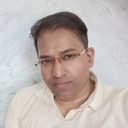Signs Of Common Obsessive Compulsive Disorder
Discover the common signs of Obsessive-Compulsive Disorder (OCD), including intrusive thoughts, repetitive rituals, and distress. Learn to recognize the symptoms and find help for managing compulsions and obsessions. Get informed about OCD symptoms.

Written by Dr. Vasanthasree Nair
Reviewed by Dr. Rohinipriyanka Pondugula MBBS
Last updated on 13th Jan, 2026

Introduction
Obsessive Compulsive Disorder, or OCD, is a common and often misunderstood mental health condition characterized by a cycle of unwanted, intrusive thoughts (obsessions) and repetitive behaviors or mental acts (compulsions). Far beyond a simple desire for cleanliness or order, this common obsessive disorder is a source of significant distress and can severely impact daily life. The core of OCD isn't about the actions themselves, but about the intense anxiety that these obsessions generate. Individuals feel driven to perform compulsions to reduce this anxiety or prevent a feared event, even if they know these actions are irrational. This article will guide you through the most common signs of obsessive compulsive disorder, demystifying the different types of obsessions and compulsions, and explaining the cycle that traps so many. Our goal is to provide clarity, reduce stigma, and highlight the effective paths to treatment, because understanding the problem is the first step toward reclaiming your life from thi
The Obsessive Side: Unwanted and Intrusive Thoughts
Obsessions are the "O" in OCD. They are persistent, unwanted thoughts, images, or urges that trigger intensely distressing feelings. They are not simply excessive worries about real-life problems; they feel alien, intrusive, and are often violent, taboo, or frightening in nature. A key marker of an obsession is that the person tries to ignore, suppress, or neutralize them with some other thought or action—the compulsion.
Contamination Obsessions: Fear of Germs and Dirt
This is one of the most stereotyped yet very common types of OCD. The fear isn't just about dirt; it can be a fear of chemicals, bodily fluids, radiation, or even a sense of "mental contamination" from being treated unfairly. The obsession is that contact with the contaminant will lead to illness, or that you will make others sick. For example, someone might be consumed by the thought that touching a doorknob has covered their hands in deadly germs that will harm their family.
Harm-Related Obsessions: Fear of Causing or Experiencing Disaster
These intrusive thoughts center on fear of harming oneself or others, either impulsively or by accident. A parent might have a sudden, distressing image of harming their child, or a driver might be plagued by the thought that they have hit a pedestrian without realizing it. These are ego-dystonic thoughts, meaning they are the opposite of the person's true character, which makes them all the more horrifying.
Perfectionism and Symmetry Obsessions: A Need for "Just Right"
Here, the anxiety stems from a feeling of incompleteness or imbalance. The person may feel an intense need for objects to be arranged in a specific, symmetrical order, or for tasks to be performed perfectly. The obsession is that if things aren't "just right," something terrible will happen, or they will be consumed by an overwhelming sense of discomfort. This can manifest as spending hours aligning books on a shelf or re-reading an email dozens of times to ensure it contains no mistakes.
Unwanted Taboo Thoughts: The Secret Shame of OCD
Often called "pure O" (for primarily obsessional), this involves intrusive thoughts of a violent, sexual, or blasphemous nature. These can be among the most distressing symptoms of obsessive compulsive disorder, as individuals fear they are a bad person for having such thoughts. They might have unwanted sexual images involving family members or strangers, or blasphemous thoughts during religious ceremonies. The compulsion here is often mental, involving endless rumination and self-reassurance.
Health Topic Carousel:
Doctor Speciality: General Physician
Text: Consult Top Specialists
The Compulsive Side: Rituals to Neutralize Anxiety
Compulsions are repetitive behaviors or mental acts that a person feels driven to perform in response to an obsession. The goal is to reduce distress or prevent a feared event. However, the relief is only temporary, and the compulsions often end up controlling the person's life.
Cleaning and Washing Compulsions
Directly linked to contamination obsessions, these compulsive behaviors include excessive hand washing, showering, or cleaning of household items. The washing is often ritualized—for example, scrubbing each finger a specific number of times—and goes far beyond hygiene. The person may use harsh chemicals that damage their skin, yet feel unable to stop.
Checking and Re-checking Compulsions
Driven by harm obsessions, checking rituals are attempts to prevent fire, leaks, or disaster. This includes repeatedly checking that the stove is off, the door is locked, or the iron is unplugged. In severe cases, a person may drive back to their house multiple times to check, or take pictures of the switched-off appliance to temporarily quell the doubt.
Ordering, Arranging, and Counting Rituals
These compulsions aim to satisfy the need for symmetry or perfection. Individuals might arrange canned goods with labels facing perfectly forward, or walk in and out of a room a certain number of times. Counting steps, breaths, or objects are also common. The behavior is not pleasurable; it's a necessary ritual to dispel anxiety.
Mental Compulsions: The Invisible Battle
Not all compulsions are visible. Mental compulsions are internal rituals like praying, counting in one's head, repeating "safe" words or phrases, or mentally reviewing events to ensure no harm was done. For someone with harm obsessions, this might involve mentally retracing their entire drive to be sure they didn't cause an accident. This is a key sign that OCD is not just about physical actions.
The Vicious Cycle: How Obsessions and Compulsions Feed Each Other
The core mechanism of OCD is a self-perpetuating cycle. It begins with the intrusive thought (obsession), which triggers intense anxiety and doubt. To gain relief from this unbearable feeling, the individual performs the compulsion. This provides a short-term reduction in anxiety, which negatively reinforces the behavior—teaching the brain that the compulsion "works." However, this only strengthens the power of the obsession, ensuring it returns with even greater force next time. Breaking this cycle is the primary goal of effective OCD treatment.
Beyond the Stereotypes: Lesser-Known Signs of OCD
OCD can attach itself to almost any theme. Relationship OCD (ROCD) involves constant, obsessive doubt about one's relationship or partner's love. Scrupulosity is an obsession with moral or religious purity. Hyper-awareness involves an inability to stop noticing automatic bodily processes like blinking or breathing. Recognizing these variations is crucial for a correct diagnosis.
When to Seek Help?: Diagnosis and Treatment Options
If the signs and symptoms of obsessive compulsive disorder are causing significant distress, taking up more than an hour a day, or interfering with your work, social life, or relationships, it is time to seek professional help. A diagnosis is typically made by a mental health professional based on specific criteria. If these symptoms resonate with you and persist beyond two weeks, consulting a doctor online with Apollo24|7 for an initial evaluation can be a helpful first step.
Effective Therapies: Exposure and Response Prevention (ERP)
ERP therapy for OCD is the gold-standard psychological treatment. It involves gradually and systematically confronting the feared thoughts, images, or situations (exposure) without engaging in the compulsive ritual (response prevention). Over time, this teaches the brain that the anxiety will decrease on its own and that the feared outcome is unlikely, breaking the cycle.
The Role of Medication
Selective Serotonin Reuptake Inhibitors (SSRIs), a type of antidepressant, are commonly prescribed and effective for many people with OCD. They help regulate brain chemistry and reduce the intensity of the obsessions and the urge to perform compulsions, often making it easier to engage in ERP therapy.
Health Topic Carousel:
Doctor Speciality: General Physician
Text: Consult Top Specialists
Conclusion
Living with a common obsessive disorder like OCD can be an isolating and exhausting experience. The constant barrage of "what if" thoughts and the relentless drive to perform rituals can make you feel like you're losing control. However, it is vital to remember that the content of the obsessions is not a reflection of your character. You are not your thoughts. OCD is a medical condition, a malfunction of the brain's alarm system, and it is highly treatable. By recognizing the signs—the specific nature of the obsessions and the compensatory compulsions—you empower yourself to seek the right help. With evidence-based treatments like Exposure and Response Prevention therapy and, when appropriate, medication, it is entirely possible to break the cycle and manage the symptoms effectively. If this article has resonated with you, take the courageous next step of speaking with a healthcare professional. If your condition does not improve after trying self-help methods, book a physical visit to a doctor with Apollo24
Frequently Asked Questions (FAQs) About OCD
1. What's the difference between being a perfectionist and having OCD?
A. A perfectionist may strive for high standards and feel pleased when they achieve them. With OCD, the need for order or perfection is driven by intense anxiety and a fear that something bad will happen if things aren't "just right." The behavior is not pleasurable; it's a compulsive ritual to neutralize distress.
2. Can you have OCD without visible compulsions?
A. Yes. This is often called "Pure O" or primarily obsessional OCD. The compulsions are mental, such as constant rumination, mental reviewing, counting, or praying silently. The battle is entirely internal, but it is just as debilitating.
3. Is OCD genetic?
A. Research shows that OCD does have a genetic component, meaning it can run in families. However, genetics are not destiny. Environmental factors and life stressors also play a significant role in triggering the onset of symptoms.
4. How is OCD different from generalized anxiety disorder (GAD)?
A. While both involve anxiety, the focus differs. GAD typically involves excessive worry about real-life concerns (money, health, work). OCD is characterized by specific, intrusive thoughts (obsessions) and ritualistic behaviors (compulsions) aimed at reducing the anxiety from those thoughts.
5. Can OCD be cured?
A. There is no definitive "cure" for OCD, but it is a highly manageable condition. With effective treatment like ERP therapy, most people can achieve significant reduction in symptoms and regain control over their lives, allowing them to function well and pursue their goals.
Consult Top Specialists for Personalised Tips

Dr. Vivek D
General Physician
4 Years • MBBS
Bengaluru
PRESTIGE SHANTHINIKETAN - SOCIETY CLINIC, Bengaluru

Dr Syed Mateen Pasha
General Physician
2 Years • MBBS
Bengaluru
PRESTIGE SHANTHINIKETAN - SOCIETY CLINIC, Bengaluru

Dr. Harshendra Jaiswal
General Physician/ Internal Medicine Specialist
12 Years • MBBS , MD (General medicine)
Kolkata
108 DHANA DHANVANTARI Clinic, Kolkata
(25+ Patients)
Dr. Thandra Ramoji Babu
General Physician/ Internal Medicine Specialist
5 Years • MBBS, DNB(General Medicine)
Warangal
Sai Ram multi-specialty hospital, Warangal
Dr P Sai Avinash
General Physician/ Internal Medicine Specialist
7 Years • MBBS
Bengaluru
Apollo Medical Center, Marathahalli, Bengaluru
Consult Top Specialists

Dr. Vivek D
General Physician
4 Years • MBBS
Bengaluru
PRESTIGE SHANTHINIKETAN - SOCIETY CLINIC, Bengaluru

Dr Syed Mateen Pasha
General Physician
2 Years • MBBS
Bengaluru
PRESTIGE SHANTHINIKETAN - SOCIETY CLINIC, Bengaluru

Dr. Harshendra Jaiswal
General Physician/ Internal Medicine Specialist
12 Years • MBBS , MD (General medicine)
Kolkata
108 DHANA DHANVANTARI Clinic, Kolkata
(25+ Patients)
Dr. Thandra Ramoji Babu
General Physician/ Internal Medicine Specialist
5 Years • MBBS, DNB(General Medicine)
Warangal
Sai Ram multi-specialty hospital, Warangal
Dr P Sai Avinash
General Physician/ Internal Medicine Specialist
7 Years • MBBS
Bengaluru
Apollo Medical Center, Marathahalli, Bengaluru
